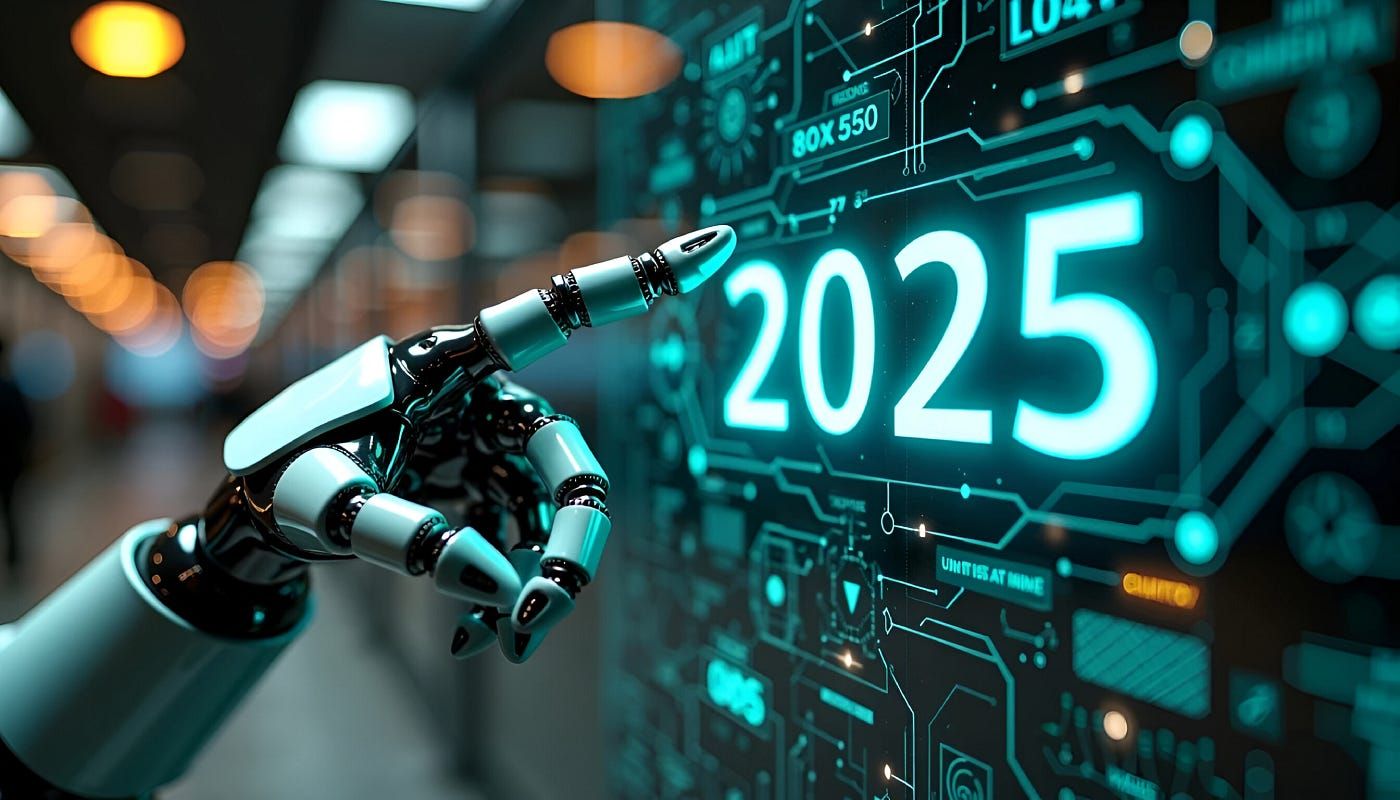

As we stand on the cusp of 2025, artificial intelligence has woven itself into the fabric of our daily lives in ways both subtle and profound. From the moment we wake up to the time we rest our heads at night, AI touches nearly every aspect of our routines, decisions, and interactions. Let’s explore this topic in more detail with Papa’s Freezeria below, as we delve into how this beloved game franchise has embraced AI to create an even more immersive and personalized experience for players. The integration of AI in entertainment is just one facet of the technological revolution reshaping our world, and it serves as a microcosm of the broader changes we’re witnessing across industries and societies.
In 2025, our homes have become smart ecosystems, anticipating our needs and adapting to our preferences with uncanny precision. AI-powered personal assistants have evolved beyond simple voice commands to become proactive partners in our daily lives. These digital companions learn from our behaviors, schedule our appointments, manage our energy consumption, and even offer emotional support when they detect stress in our voice patterns.
The integration of AI into our living spaces goes far beyond convenience. Smart thermostats now use machine learning algorithms to optimize temperature settings based on our habits, local weather patterns, and energy prices, resulting in significant cost savings and reduced environmental impact. AI-enabled security systems can distinguish between residents, guests, and potential intruders, alerting authorities only when necessary and reducing false alarms.
In the kitchen, AI has revolutionized meal planning and preparation. Smart refrigerators inventory their contents, suggest recipes based on available ingredients and dietary preferences, and even place orders for groceries when supplies run low. Cooking appliances equipped with computer vision and AI can guide novice chefs through complex recipes, adjusting cooking times and temperatures to ensure perfect results every time.
Read more: Top 10 Emerging Technologies That Will Shape the Future
The traditional office environment has undergone a dramatic transformation thanks to AI. Virtual reality meeting spaces, powered by sophisticated AI algorithms, create immersive collaborative environments that blur the lines between physical and digital presence. These spaces adapt in real-time to participants’ needs, seamlessly translating conversations, generating meeting summaries, and even suggesting action items based on the discussion.
AI-driven project management tools have become indispensable, predicting potential bottlenecks, allocating resources optimally, and even suggesting team compositions based on individuals’ strengths and workloads. Natural language processing has advanced to the point where AI can draft emails, reports, and presentations with a level of nuance and personalization that rivals human writers.
In creative fields, AI serves as a powerful collaborator rather than a replacement for human ingenuity. Designers and artists use AI-powered tools that can generate initial concepts based on verbal descriptions, allowing creatives to iterate and refine ideas at unprecedented speeds. Musicians collaborate with AI to explore new harmonies and compositional structures, pushing the boundaries of what’s possible in sound.
As AI becomes more prevalent in professional settings, companies have had to grapple with new ethical considerations. Transparency in AI decision-making processes, particularly in areas like hiring and performance evaluations, has become a key focus. Many organizations have implemented AI ethics boards to ensure that the use of AI aligns with human values and does not perpetuate biases or unfair practices.
The rise of AI has also led to a shift in the skills valued in the workplace. While technical proficiency remains important, uniquely human skills such as emotional intelligence, creative problem-solving, and ethical decision-making have become increasingly prized. Continuous learning programs, often powered by AI-driven personalized curricula, help employees adapt to the rapidly changing technological landscape.
In 2025, AI has become an integral part of healthcare, from diagnosis to treatment and aftercare. Advanced imaging analysis powered by machine learning can detect cancers and other diseases at earlier stages than ever before, significantly improving patient outcomes. AI algorithms process vast amounts of medical literature and clinical data to assist doctors in making more informed decisions about treatment plans.
Personalized medicine has taken a giant leap forward thanks to AI’s ability to analyze an individual’s genetic makeup, lifestyle factors, and medical history to tailor treatments with unprecedented precision. Drug discovery has been accelerated by AI models that can predict how new compounds will interact with biological systems, drastically reducing the time and cost of bringing new medications to market.
Wearable devices, enhanced by AI, provide continuous health monitoring, alerting users and healthcare providers to potential issues before they become serious. These devices go beyond simple fitness tracking to monitor vital signs, sleep patterns, and even emotional states, offering a holistic view of an individual’s health.
AI-powered mental health apps have become sophisticated enough to provide meaningful support for those dealing with anxiety, depression, and other mental health challenges. These apps use natural language processing to engage in therapeutic conversations, offer coping strategies, and even alert human professionals when more intensive intervention may be needed.
Virtual reality therapy, guided by AI, creates immersive environments for treating phobias, PTSD, and other conditions. The AI adapts the virtual experience in real-time based on the patient’s physiological responses, creating a personalized and gradual exposure therapy that has shown remarkable efficacy.
The dream of fully autonomous vehicles has become a reality in 2025, with AI-driven cars, buses, and trucks becoming a common sight on roads worldwide. These vehicles communicate with each other and with smart infrastructure to optimize traffic flow, reduce accidents, and lower emissions. AI traffic management systems adjust signal timings and suggest route alternatives in real-time, significantly reducing congestion in urban areas.
Urban planning has been revolutionized by AI’s ability to simulate and predict the impact of various development scenarios. City planners use these tools to design more efficient public transportation networks, create greener spaces, and ensure equitable access to resources across neighborhoods.
In the realm of personal transportation, AI has enabled new modes of mobility. Electric vertical takeoff and landing (eVTOL) aircraft, guided by AI systems, offer short-distance air taxi services in some cities, providing a glimpse into a future of three-dimensional urban transportation.
AI has become a crucial ally in the fight against climate change. Smart grids powered by AI optimize energy distribution, integrating renewable sources more efficiently and reducing waste. In agriculture, AI-driven precision farming techniques maximize crop yields while minimizing water usage and the application of pesticides.
Waste management has been transformed by AI-powered sorting systems that can identify and separate recyclables with incredible accuracy, significantly increasing recycling rates. AI models also help in predicting natural disasters and planning evacuation routes, saving lives and reducing the economic impact of extreme weather events.
Read more: Why Everyone Should Learn the Basics of Cybersecurity
The education sector has embraced AI to provide personalized learning experiences at scale. Adaptive learning platforms use AI to assess a student’s knowledge and learning style, tailoring the curriculum to address individual strengths and weaknesses. Virtual tutors, available 24/7, provide one-on-one assistance, answering questions and offering explanations in ways that resonate with each student.
In higher education and professional training, AI-powered simulations create immersive learning environments where students can practice real-world skills in safe, virtual settings. From medical procedures to complex engineering tasks, these simulations provide hands-on experience that was previously difficult or expensive to obtain.
Language learning has been revolutionized by AI that can engage in natural conversations, providing instant feedback on pronunciation and grammar. These systems adapt to the learner’s progress, introducing new vocabulary and concepts at the optimal pace for retention and fluency.
The entertainment industry has been transformed by AI’s ability to analyze audience preferences and create tailored content. Streaming services use sophisticated recommendation algorithms that not only suggest existing content but also influence the creation of new shows and movies based on viewer data.
In gaming, AI has enabled new levels of immersion and interactivity. Games like Papa’s Freezeria have evolved to incorporate AI that learns from player behavior, creating unique challenges and storylines for each individual. The AI adjusts difficulty levels in real-time, ensuring that players are always engaged and challenged without becoming frustrated.